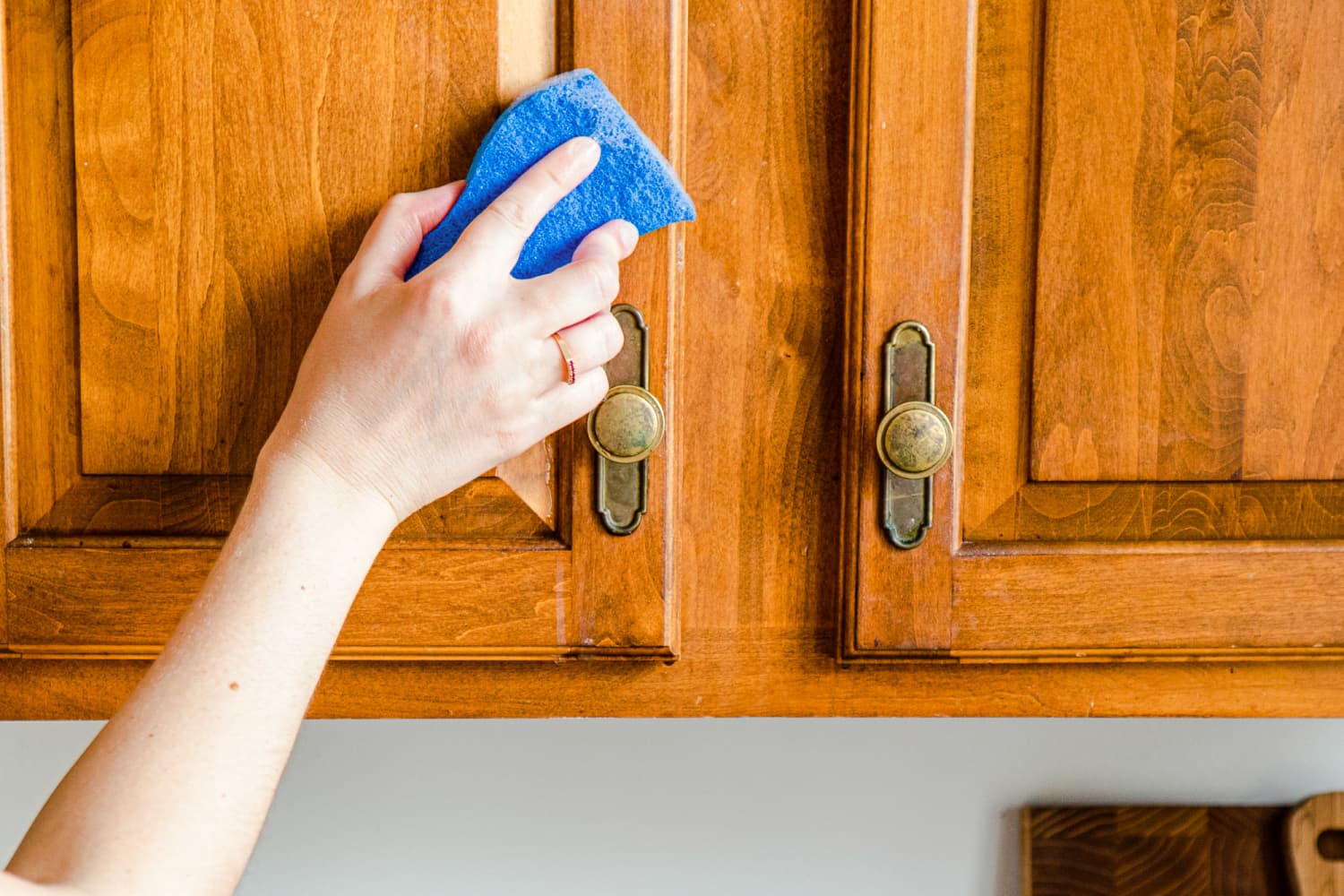We independently select these products—if you buy from one of our links, we may earn a commission. All prices were accurate at the time of publishing.
Anyone who has even a passing curiosity about the very best ways to get a kitchen (or anywhere in the house) clean knows that often the most effective product is the humble household staple, dish soap. From window blinds to barware, pros will tell you time and time again that this affordable, widely available elixir is the cleanser you should reach for, for pretty much any job. And you should — except when you really shouldn’t.
Believe it or not, there are dozens of household items and surfaces that dish soap can actually damage. So what should you never clean with dish soap, and why? We asked professional cleaners, and here’s what they had to say.
“This leaves a bubbly mess that proves very difficult to clean, especially in the water tank,” says Jessica Samson, cleaning expert at The Maids cleaning services in Nebraska. “Instead, you should use a vinegar solution to clean the inside of your coffee maker. This will clean it much better and more efficiently. It can be tempting to use dish soap on your coffee maker, but trust me, don’t do it!”
2. Granite and Stone Countertops
“Dish soap can strip away the seasoning on cast iron pans, so instead of cleaning them like you would a regular dish, use some hot water and a brush,” says Garcia, adding that you can find cast iron cleaners if you need a deep clean.
“[Dish soap] can leave streaks and watermarks on stainless steel surfaces,” says Sokolowski. Instead, opt for a solution specially formulated for stainless steel appliances.
“Like on floors, dish soap can leave streaks and residue on mirrors if you don’t rinse it fully, and that can take a lot of water. Instead, use diluted vinegar or glass cleaner,” recommends Schulz.
Alicia Sokolowski, president and co-CEO of Vancouver’s AspenClean house cleaning services, notes that dish soap can etch and dull the surface of the marble.
“While the internet might recommend it as a DIY insecticide for your plants, you may want to think twice,” says Toby Schulz, CEO & co-founder at Maid2Match. “The ingredients in many commercial dish soaps can damage your plants, and might not be effective anyway.” Chemicals like ammonia, dyes, chlorine, and phosphates can all be deadly to plants, even if diluted.
“While you do need to wet mop hardwood flooring, don’t use dish soap. This could leave a residue that will ruin its appearance,” says Schulz.
“Natural oils maintain good leather, and using soap will strip that away. This will lead to the material drying and cracking,” says Schulz.
“Never use dish soap on wood furniture, as it can strip away the protective finish and leave the wood looking discolored,” says Garcia. “When cleaning wood, it’s really important to use a cleaner specifically designed for wood surfaces, as this will enhance its look rather than strip it down.”
Sokolowski advises that dish soap can scratch and remove the gold-plated finish. When it comes to jewelry and gold-plated surfaces, always use a designated cleaner.
Ran out of detergent? Don’t use dish soap in its place. “Dishwasher designs support dishwasher detergent, not regular dish soap,” says Ryan Knoll, owner of Tidy Casa in Arizona. “The primary reason is that dish soap creates a lot of suds or bubbles. When used in a dishwasher, these suds can overflow the dishwasher and spill out onto your kitchen floor, creating a mess and potentially damaging the machine or flooring. Dishwasher detergents are low-sudsing and specially formulated for use in these machines.”
Finally, remember that it’s probably not a good idea to mix dish soap and bleach. “Combining bleach with dish soap is not recommended because the combination can create harmful gasses,” says Knoll. “While most modern dish soaps don’t contain ammonia, some still might. When bleach and ammonia are mixed, they react to form chloramine gas, which is very harmful if inhaled. Even if your dish soap doesn’t contain ammonia, it can contain other chemicals that, when mixed with bleach, can create harmful gasses or irritating fumes. It’s safer to avoid mixing these two products.”
Ultimately, while dish soap is incredibly useful in countless ways in and around the home — from removing stains to unclogging drains — before you reach for it, make sure the surface you’re cleaning doesn’t need a material-specific cleaner for the best result.

